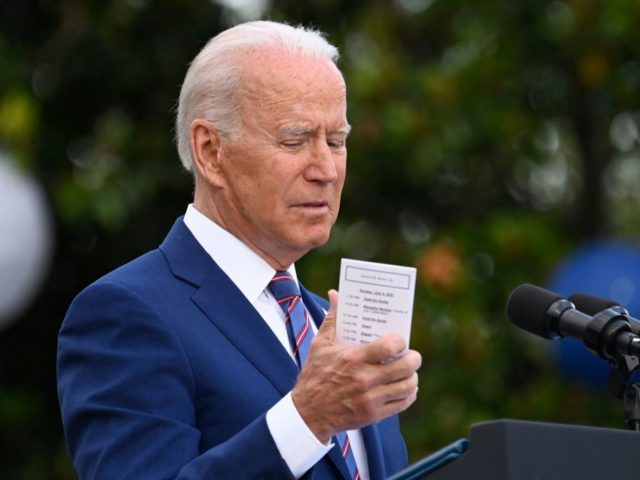President Joe Biden’s White House is being pressured to ease travel restrictions that stemmed from the start of the Chinese coronavirus pandemic.
Parts of Europe have already started to open their border to Americans looking to travel abroad, and the vaccination rates in the U.S. have increased, causing public health experts and members of the travel industry to start applying pressure to restart international traveling again.
The Hill noted Secretary of State Antony Blinken under Biden has previously said that the U.S. will be looking for the “best course of action” with the help from medical experts, though, reportedly, the officials from America and Europe are allegedly working together on an agreement.
The travel industry is beginning to say that having travel restrictions is now starting to be unrelated to the Chinese coronavirus, which has slashed the revenue of the industry. The restrictions are increasing problems for international business travel, summer vacations, and even students trying to get back into the states before school starts in the fall. According to the Hill, traveling from around the world into the United States has seemingly been shut down unless you are an American citizen, family members of U.S. citizens, or individuals from exempted groups such as international students.
Steve Shur, president of the Travel Technology Association, has said that the restrictions on travel from the Biden administration are “frozen in time.” He added, “We believe it’s possible now, at least for countries of low risk, to start to reopen international travel” to the U.S.
There have been travel restrictions on specific countries, like when Biden shut down travel from India in April when Chinese coronavirus cases surged. Experts have repeatedly said that the administration picking and choosing certain countries due to disease is arbitrary since disease and the delta variant have already been in the U.S.
Lawrence Gostin, director of the O’Neill Institute for National and Global Health Law at Georgetown Law, has said that “It makes no sense, if you look at that list of countries, it’s completely nonsensical.”
“Even if you could accurately pick and choose, which you really can’t, by the time you’ve implemented the policy, it’s changed,” he added, noting that by the time large outbreaks of COVID-19 rose to international attention in India or Brazil, travelers from these countries were already coming and going through the United States.
Gostin continued:
“The safest way for a traveler to come to the United States is to come fully vaccinated with an effective vaccine. I think using a vaccine passport system, and if somebody is not vaccinated then a very recent SARS-CoV-2 test result would be important, to make sure that the United States is safe,” he said.
“If we want to get anywhere near back to normal, we can’t live in a bubble. We’re going to have to start international travel, tourism and trade, as other countries recognize. But we want to do it safely.”
In June, when Blinken had a press conference with the French foreign minister in Paris, he said he “can’t put a date on it.”
He also said, “I can tell you we’re working very actively on this right now, and we are – like France, like our other partners in Europe – both anxious and looking forward to restoring travel. But we have to be guided by the science.” He mentioned that they are being “guided by medical expertise.”
The Hill noted, “The U.S. is the largest global travel and tourism market, according to data from the World Travel & Tourism Council (WTTC), with a $105 billion contribution to the domestic economy at stake if travel doesn’t resume.”
According to the National Association of Foreign Student Advisers (NAFSA), “International students contributed up to $38.7 billion to the U.S. economy during the 2019 and 2020 academic year, a $1.8 billion drop from the previous year, with $1.2 billion of that directly related to the pandemic.”
The Hill further reported on international students:
A State Department spokesperson said that the Bureau of Consular Affairs coordinates closely with the global network of EducationUSA international student advising centers to disseminate information to students and universities about the resumption of consular services abroad and enhanced flexibilities in government policies.
Students with valid visas in categories of F-1 and M-1 do not need to contact the embassy prior to traveling to the U.S. and can arrive 30 days before their studies begin.
“We continue to encourage both students and U.S. higher education institutions to maintain maximum flexibility in navigating the coming academic year, which includes accepting offers of admission and negotiating academic program start dates to accommodate variability in student arrivals on campus,” the spokesperson said.
When asked by the Hill, the Centers for Disease Control and Prevention (CDC) did not answer their comment request regarding efforts to open the US for international travel.

COMMENTS
Please let us know if you're having issues with commenting.